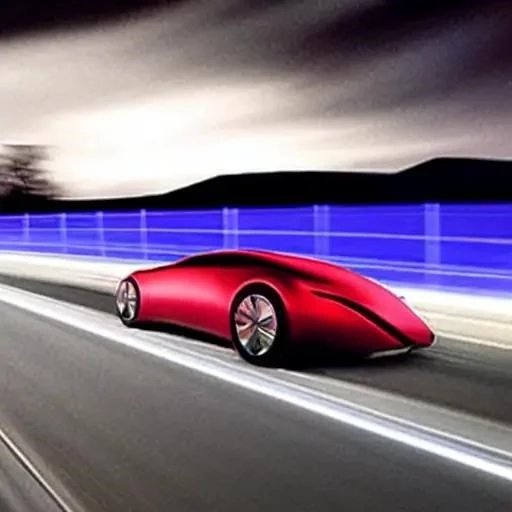
The automotive industry, a behemoth built on over a century of mechanical innovation, is currently undergoing a seismic shift. Fueled by rapidly advancing technology, the future of transportation is being actively rewritten, promising not only enhanced efficiency and safety, but also entirely new paradigms of ownership and user experience. We are witnessing a transformation driven by electrification, autonomous driving capabilities, and connected car technologies, all interwoven with sophisticated data analytics and artificial intelligence. This potent combination is not just tweaking existing models; it’s fundamentally reshaping the very essence of how we interact with vehicles and the world around us, offering a tantalizing glimpse into a future where driving becomes less of a chore and more of a seamless, integrated part of our lives.
This technological revolution is fueled by several key trends. The relentless pursuit of sustainable energy sources is driving the rapid adoption of electric vehicles (EVs), supported by substantial government investment and increasing consumer awareness. Simultaneously, the development of autonomous driving systems, powered by advanced sensors and sophisticated algorithms, promises to drastically reduce accidents and improve traffic flow. Furthermore, the rise of connected car technologies is transforming vehicles into mobile data hubs, enabling a wide range of services, from real-time traffic updates to personalized entertainment experiences. By integrating insights from AI, automakers are creating smarter, more responsive vehicles that adapt to individual driver preferences and anticipate potential hazards. This confluence of factors is creating a perfect storm of innovation, propelling the automotive industry towards a future that is both exciting and profoundly different from the past.
| Category | Information |
|---|---|
| Key Industry Trends | Electrification, Autonomous Driving, Connected Car Technologies, AI Integration |
| Impact on Consumers | Enhanced Safety, Improved Efficiency, Personalized User Experience, New Ownership Models (e.g., Subscription Services) |
| Challenges & Opportunities | Infrastructure Development (EV Charging), Data Security & Privacy, Regulatory Frameworks, Workforce Adaptation |
| Key Players | Tesla, Google (Waymo), GM, Ford, Toyota, Volkswagen, BMW, Mercedes-Benz, Numerous Technology Startups |
| Website Reference | Automotive Dive |
One of the most significant advancements is undoubtedly the progress being made in autonomous driving. Companies like Tesla, Waymo, and established automakers are investing billions in developing self-driving technologies, ranging from advanced driver-assistance systems (ADAS) to fully autonomous vehicles. The potential benefits are immense: a significant reduction in traffic accidents (estimated to be as high as 90% in some studies), increased fuel efficiency due to optimized driving patterns, and greater accessibility for individuals who are unable to drive themselves. These technologies are not just limited to passenger vehicles; they are also being deployed in commercial vehicles, such as trucks and delivery vans, promising to revolutionize the logistics and transportation industries. The journey towards full autonomy is undoubtedly complex, involving overcoming significant technological hurdles and addressing ethical concerns, but the potential rewards are too great to ignore.
Beyond autonomous driving, the rise of connected car technologies is creating a whole new ecosystem of services and applications. Vehicles are increasingly becoming sophisticated data platforms, collecting vast amounts of information about their surroundings, their performance, and the behavior of their occupants. This data is being used to provide drivers with real-time traffic updates, personalized navigation assistance, and predictive maintenance alerts. Moreover, connected car technologies are enabling new forms of entertainment and communication, allowing drivers and passengers to seamlessly integrate their vehicles with their digital lives. The potential for innovation in this area is virtually limitless, with automakers and technology companies constantly developing new and innovative ways to leverage connected car data to improve the driving experience and enhance the overall value proposition of vehicles.
Electrification is another transformative force reshaping the automotive industry. Driven by growing concerns about climate change and air pollution, governments around the world are implementing increasingly stringent emissions regulations, incentivizing the adoption of EVs. As battery technology continues to improve and charging infrastructure expands, EVs are becoming increasingly competitive with traditional gasoline-powered vehicles. Moreover, EVs offer a number of compelling advantages, including lower operating costs, reduced maintenance requirements, and a quieter, smoother driving experience. The transition to electric mobility is not without its challenges, including the need for significant investments in charging infrastructure and the development of more sustainable battery production processes. However, the momentum behind electrification is undeniable, and it is clear that EVs will play an increasingly prominent role in the future of transportation. By embracing these technological advancements, the automotive industry is poised to create a safer, more sustainable, and more enjoyable transportation experience for all.
